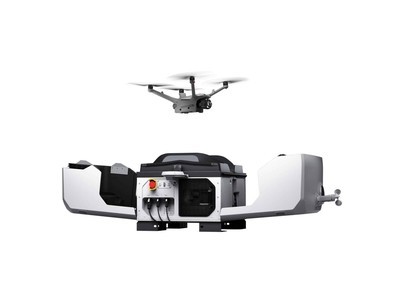Mastering the Skies: A Guide to Becoming a Skilled Drone Operator
In today’s rapidly advancing world, drones have become more than just a hobbyist’s delight; they are now essential tools in various industries, from photography to agriculture. Aspiring drone pilots must cultivate a deep understanding of the technology and regulations surrounding drone operation. This article outlines key insights and practical tips for becoming a proficient drone operator, ensuring your ventures into the skies are both safe and rewarding.
Understanding Drone Technology
Becoming an expert drone pilot requires an understanding of the diverse components and technologies that make up drones. Familiarize yourself with terms such as flight controllers, GPS systems, and gimbal stabilizers. Drones vary widely in size, capabilities, and price range, so assessing the specifications of different models can help you choose one that suits your specific needs.
Acquiring Necessary Skills

Successful drone operation involves mastering several skills, including precise maneuvering, spatial awareness, and effective problem-solving techniques. To begin, practice your flying skills in open areas and use simulators for risk-free training. Drone pilots also benefit from understanding weather patterns and how they can affect flight performance.
Pilot Certification and Regulations
Official certification is often required for professional drone use. Programs that offer this certification typically cover safety protocols, airspace regulations, and emergency procedures. Staying informed about the changing legal landscape is crucial; FAA guidelines offer comprehensive resources to guide you.
Exercise Safety and Best Practices
Safety should be your priority when piloting drones. Awareness of surroundings, respecting privacy laws, and maintaining an unobstructed view of your drone are essential practices. Regular maintenance checks on your drone’s hardware and software components can prevent unforeseen malfunctions.
Leveraging Drone Usage in Industries
Drones are revolutionizing various sectors, including filmmaking, agriculture, real estate, and infrastructure inspections. Understanding how drones can add value in these industries will not only enhance your career prospects but can also lead to innovative solutions and applications.
FAQ Section
Q: Do I need a license to fly a drone?
A: Yes, in many countries, professional and commercial drone operations require a license. Additionally, recreational users are often required to register their drones with relevant authorities.
Q: What kind of job opportunities are available for drone pilots?
A: Drone pilots can find opportunities in diverse fields such as aerial photography, cinematography, survey mapping, wildlife monitoring, and delivery services.
Q: Is drone flight affected by weather?
A: Absolutely. Wind, rain, and low temperatures can significantly impact drone performance and safety. Pilot awareness of weather conditions is crucial for ensuring efficient operations.
In conclusion, becoming a master of drone piloting involves dedication to learning, adherence to regulations, and a commitment to safe practices. As drones continue to expand their role across different sectors, the demand for skilled operators likewise increases. Embrace the sky with confidence and precision, and watch your skills—and career—soar to new heights.